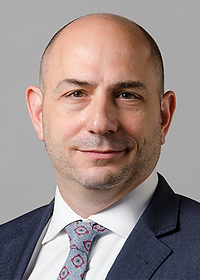Introduction
Behavioural Activation (BA) is a straight-forward and flexible therapeutic approach that has gained widespread acceptance as a treatment for depression, and more recently as efficacious for other conditions including substance use, anxiety, trauma, and mental health difficulties associated with chronic physical health conditions including cancer. This workshop will focus on a brief version of BA that is an individualized approach using structure and support to help individuals presenting to a range of clinical settings, with a range of clinical conditions, to engage more frequently in rewarding healthy behaviour and to live a more valued life on a daily basis.
The event will be equivalent to 2.3/4hrs of CPD.
Content
This workshop will provide a clinical training on how to implement a brief behavioural activation treatment for depression (Lejuez et al., 2011). This will include presentation of the implementation of the treatment with clinical examples that include straight-forward depression as well as complex cases of depression with an array of comorbid physical (e.g., obesity, cancer, HIV infection, diabetes) and psychological (anxiety, substance use, personality disorders) conditions. The approach will be presented both as a stand-alone treatment and as an adjunctive strategy to be used in conjunction with other interventions for adults as well as youth. At the conclusion of this training, all participants will have a basic knowledge of the theoretical underpinnings of brief behavioural activation more generally and will be able to implement this approach in their own clinical work across a range of settings and clinical conditions.
Learning Objectives
You will learn:
1. the role of basic behavioural principles in behavioural activation
2. to be comfortable in using behavioural activation with clients regardless of the theoretical orientation of the client
3. how to identify and respond to treatment resistance
4. how to flexibly use behavioural activation in combination with other treatment approaches.
Training Modalities
Videos
Didactic teaching
Audience participation
Example completion of treatment forms
Slido polls
Key References
Jacobson, N. S., Martell, C. R., Dimidjian, S. (2001). Behavioral Activation Treatment for Depression: Returning to Contextual Roots. Clinical Psychology: Science and Practice, 8, 255-270.
Lejuez, C. W., Hopko, D. R., Acierno, R., Daughters, S. B., & Pagoto, S. L. (2011). Ten year revision of the brief behavioral activation treatment for depression: Revised treatment manual. Behavior Modification, 35, 111-161.
Hopko, D. R., Lejuez, C. W., Ruggiero, K. J., & Eifert, G. H. (2003). Contemporary behavioral activation treatments for depression: Procedures, principles, and progress. Clinical Psychology Review, 23, 699-717. doi:10.1016/S0272-7358(03)00070-9.
Cassar, J., Ross, J., Dahne, J., Ewer, P., Teeson, M., Hopko, D. R., & Lejuez, C. W. (2016). Behavioural activation therapy for depression- revised (BATD-R) treatment manual: Practical wisdom and clinical nuance. Clinical Psychologist, 20, 46-53. doi: 10.1111/cp.12085.
Dahne, J., Kustanowitz, J., Lejuez, C. W. (2018). Development and preliminary feasibility study of a brief behavioral activation mobile application (behavioral apptivation) to be used in conjunction with ongoing therapy. Cognitive and Behavioral Practice, 25, 44-56. doi: 10.1016/j.cbpra.2017.05.004.
1. Collado, A., Calderón, M., MacPherson, L., & Lejuez, C. W. (2016). The efficacy of behavioral activation treatment among depressed Spanish-speaking Latinos. Journal of Consulting and Clinical Psychology, 84, 651-657. doi: 10.1037/ccp0000103. PMCID: PMC4919206.
About the presenter
Carl W. Lejuez received his M.A. and Ph.D., both in clinical psychology, from West Virginia University, and completed his clinical internship at the Brown University Clinical Psychology Training Consortium. As a first-generation college student, he earned his B.A. in psychology from Emory University. His work focuses on depression, addiction, and personality disorders with a key goal of developing behavioural treatments – including brief behavioural activation – for individuals from marginalized and underserved populations in the US and abroad. While he continues to be active in research and treatment development, he currently spends much of his time as an academic administrator serving as the provost at the University of Connecticut. He previously served as the interim provost and the dean of the College of Liberal Arts & Sciences at the University of Kansas. While he can’t fully remember why, his favorite English football team is Wigan Athletic – Go Latics!
Who should attend
This treatment is meant to be administered by practitioners across a broad range of training and discipline. The training is designed to be engaging and useful for novice and experienced cognitive behavioural therapists and low intensity practitioners.
Low Intensity clinical contact hours survey - BABCP Low Intensity Special Interest Group
Please click below if you are interested in contributing to the survey.
The BACP Low Intensity SIG are interested in the impact of clinical contact hours on Low Intensity/Wellbeing Practitioner wellbeing. This questionnaire contains six multi-choice questions and a free text box for you to share your experiences. The answers to these questions will help the BABCP SIG plan how to meet CPD topics and other developments within the SIG. The SIG hope to produce a write up of the answers to this questionnaire to be shared with SIG members and to be used in training.
This FREE conference is for Psychological Wellbeing Practitioners working in Talking Therapies for Anxiety and Depression services and is brought to you by Bespoke Mental Health in collaboration with the NHS National PWP Leads Network.


